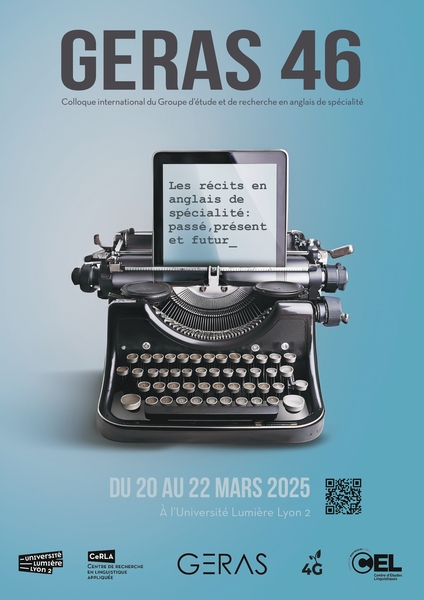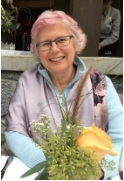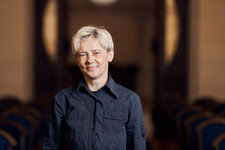Conférences plénièresConférence plénière 1
Sheena est professeure de linguistique appliquée à l’Université de Coventry, au Royaume-Uni. Elle a rejoint l’université de Coventry en tant que directrice du Département d’anglais et des langues en 2011, après avoir quitté l’université de Birmingham, où elle était maîtresse de conférences en didactique et membre du Centre de recherche sur le multilinguisme MOSAIC. Auparavant, elle travaillait au CELTE, aujourd’hui Centre de linguistique appliquée, à l’université de Warwick. Sheena a une formation en linguistique fonctionnelle, en enseignement de l’anglais (en Allemagne, au Soudan, en Ukraine), en formation des enseignants d’anglais langue étrangère, d’anglais langue seconde et d’anglais langue additionnelle, et en linguistique appliquée (au Canada et au Royaume-Uni), avec une expérience en Malaisie, au Botswana, au Pakistan et en Chine. Elle aime enseigner la grammaire, l’anglais académique et l’analyse des genres, et a participé à l’élaboration de programmes nationaux et internationaux d’enseignement pré-universitaire, de premier cycle, de troisième cycle et de programmes professionnels. Elle a publié des ressources pédagogiques et des articles internationaux dans des revues telles que Applied Linguistics, TESOL Quarterly, Language and Education, Language Awareness, Language Teaching Research, English Language Teaching Journal, TESL Canada Journal, Journal of English for Academic Purposes et International Journal of Bilingual Education and Bilingualism. En tant que spécialiste de linguistique appliquée, elle apprécie particulièrement les synergies entre l’enseignement et la recherche. En étudiant l’anglais employé dans la formation, nous découvrons la complexité du fonctionnement de la langue dans des contextes sociaux et pédagogiques divers et en évolution, ainsi que la manière dont nous communiquons à différents niveaux. Cette complexité s’enrichit lorsque l’anglais est utilisé dans des contextes internationaux par des locuteurs d’autres langues.
The Narrative Recount Genre Family in the BAWE corpus Narrative Recounts belong to a relatively understudied genre family, compared to essays, critiques and case studies, but they are distinctive and in the BAWE corpus they were found at all levels of study (from undergraduate years 1-3 to taught Master’s) and across all disciplinary groups (Arts & Humanities, Social Sciences, Life Sciences, Physical Sciences). Their purpose is to demonstrate / develop awareness of motives and / or behaviour in individuals or organisations. They include examples such as accident reports, accounts of website searches, and urban ethnographies. They are basically fictional or factual recounts of events, with optional comments. The Narrative Recount genre family scores highly on the narrative dimension in a multidimensional analysis, and can be recognised through its many past tense verbs and third person grammatical features. What is perhaps more surprising, is that this genre family is also the least informational on the involved – informational dimension, with its relatively low type-token ratio alongside first person pronouns and private verbs/ mental processes. It is also the least elaborated on the situation-dependence dimension, with its relatively frequent use of time and place adverbials. Narrative Recounts occur both as stand-alone assignments and as part of larger assignments – for instance they can be added as a reflection on process to Case Studies, Essays, Explanations, Methodology Recounts, Problem Questions or Proposals. Narrative Recounts are therefore not typically narratives with a complicating action that is resolved, but they do often suggest a triumph over adversity. This paper will examine the two types of Narrative Recount genre found in the BAWE corpus (personal and impersonal) and will raise questions about their relevance for student development, for objective assessment and for creative criticality. The BAWE corpus is freely available to researchers and can be downloaded from the Oxford Text Archive through British Academic Written English Corpus (BAWE) | Coventry University.
Conférence plénière 2
Jolanta Šinkūnienė est professeure de linguistique et directrice de l’Institute of English, Romance and Classical Studies à l’Université de Vilnius en Lituanie. Ses intérêts de recherche portent sur les discours universitaires, les cultures disciplinaires, les pratiques de publication scientifique, l’évaluation des travaux de recherche, les dimensions identitaires des professions universitaires et les carrières dans le monde de la recherche.
Hidden Narratives in Academia In research writing we expect convincing arguments and empirical evidence, rationality and novelty, replicability and multiple voices backing up the claims of the writer. It may seem thus that a personal story does not have its place in research writing context. However, hidden in the footnotes or special sections at the end of the article, lie small, succinct texts offering a vivid picture of the multifaceted and complex life in academia. From moral support to money granted, from data sharing to taking care of experimental birds, these hidden narratives layer after layer reveal epistemologies, traditions and cultures of different academic communities. In my study, I investigate patterns of narratives in research writing. Using the frameworks of genre analysis (Swales 1990, 2004) and stance and engagement (Hyland 2005) as well as a corpus based approach to discourse analysis, I focus on the rhetorical structure and identity elements in research article acknowledgments in various disciplines. The results of the study could be useful to both experienced and novice scholars who are interested in communication and engagement patterns in research world. The insights derived from the study could also be appealing to non-academic audiences curious about day-to-day realities of professional contexts. References: Hyland, K. (2005). Stance and engagement: A model of interaction in academic discourse. Discourse Studies, 7(2), 173-192. Swales, J.M. (1990). Genre analysis: English in academic and research settings. Cambridge: CUP. Swales, J.M. (2004). Research genres: Explorations and applications. Cambridge: CUP.
|









